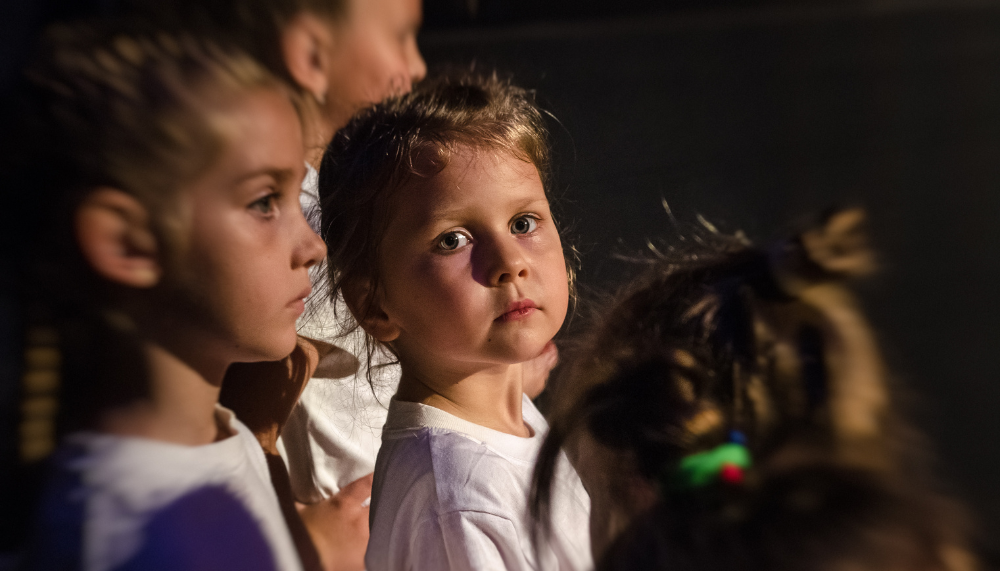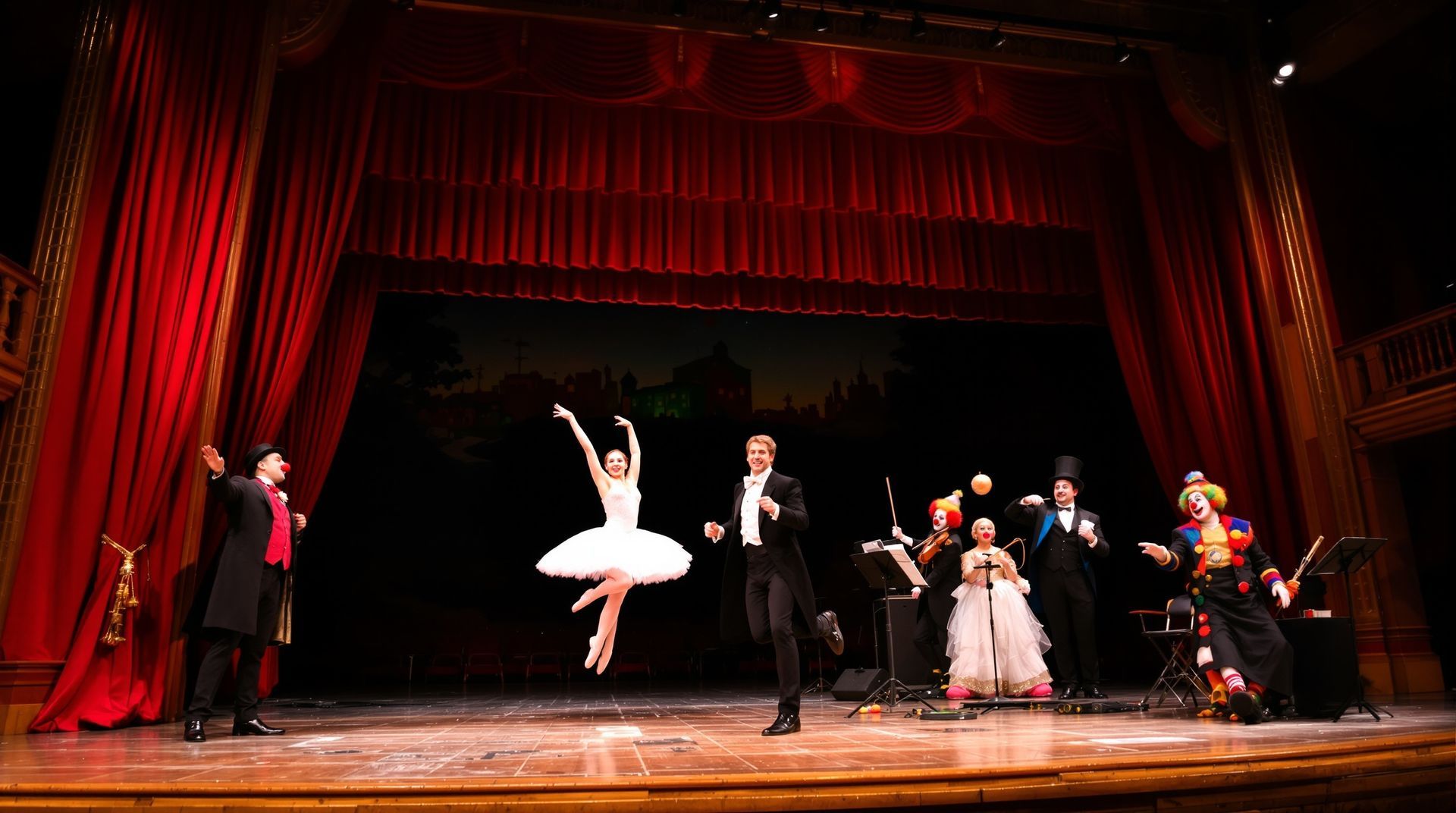The benefits of comic theater for children: why choose short plays?
You've probably experienced this scene before: your 5-year-old child starting to fidget after 20 minutes of a show, or your teenager sighing conspicuously during a play that's "too long." Yet, these same children can stay glued to their phones, so why not a well-balanced comedy play?

1) Laughter, the driving force of learning in a comic play
A comedic play naturally stimulates children's attention through laughter. Contrary to popular belief, laughter is not passive: it engages multiple brain regions and promotes memory. Neuroscience shows that humor activates the brain's reward system, releasing dopamine, which improves concentration and facilitates learning.
For children, this positive stimulation creates lasting associations between culture and pleasure. A comic play also develops their ability to decode the subtleties of language, wordplay, and absurd situations, greatly enriching their understanding of the world and human relationships.
The actors' exaggerated facial expressions in comedy particularly help young children identify and name emotions. This emotional recognition is a fundamental social skill that naturally transfers to their daily interactions.
2) Development of empathy and social skills
Family comedy theater often presents universal relational situations: sibling disputes, intergenerational misunderstandings, or everyday challenges addressed with humor. These performances allow children to see their own experiences reflected on stage, validating their emotions while offering new perspectives.
Identifying with characters develops empathy: the child learns to understand different points of view and anticipate the reactions of others. This capacity for decentering, fundamental to social relationships, is naturally developed through the observation of theatrical interactions.
Shared laughter as a family during a children's or teen play also creates positive shared memories and strengthens intergenerational bonds. These special moments help build a lasting family cultural foundation.
Why choose short pieces?
Children's attention spans vary considerably depending on their age. Here are some timeframes for choosing the right play for your children:
- 3-5 years: 15-20 minutes maximum
- 6-8 years: 30-45 minutes
- 9-12 years: 1 hour to 1 hour 15 minutes
Beyond these durations, attention quickly declines, transforming the cultural experience into an ordeal. The child becomes restless, disengages from the performance, and may develop a negative association with the theater.
Short comic plays maintain a steady pace, avoid dead time, and focus the plot on the essentials. This narrative condensation forces authors to use an economy of means that paradoxically serves artistic richness: every line, every gesture counts.
Choosing the Right Children's Play According to Age
- For 3-6 year olds, choose shows of 30 minutes or less, with a simple plot, clearly identifiable characters, and colorful set design. Humor should be visual and gestural rather than verbal.
- Children aged 7-10 enjoy formats ranging from 45 minutes to 1 hour, with simple wordplay and more elaborate comedic situations. They can follow a plot with twists and turns while remaining captivated by a well-constructed comedic play.
- Pre-teens (11-13 years old) can tolerate longer performances and appreciate situational humor, misunderstandings, and even light irony. They develop critical thinking skills and can analyze the comic devices of a more elaborate children's play.
Extend the magic after the show
Prepare for the outing by briefly explaining the story without giving away any surprises. After the show, encourage your child to share their favorite part, imitate a character, or draw a memorable scene. These activities extend the cognitive and creative benefits of theater.
Don't hesitate to return to the themes addressed in the play during similar everyday situations: "Do you remember the character who...", show your interest in their feelings: "What was your favorite moment?"
A short, easy-to-understand comic play for children offers an ideal cultural introduction. It is fully respectful of the child's development while maximizing its educational and emotional benefits. A thoughtful approach to these first theatrical experiences lays the foundation for a lasting relationship with the performing arts.
Check out our program in your city: Avignon, Paris or Lyon and discover our plays suitable for all generations!















